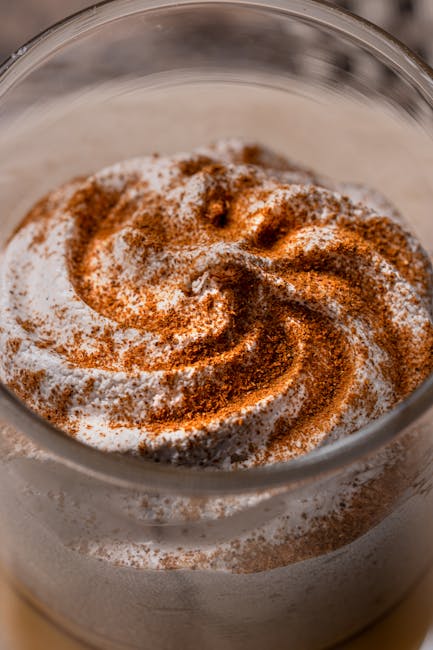Unlock Your Muscle Growth Potential: The Ultimate Guide to Leucine-Rich Foods
Leucine. It’s not a household name, but for those serious about building muscle, boosting metabolism, and maintaining overall health, this essential branched-chain amino acid (BCAA) is a critical component of a well-rounded diet. This comprehensive guide delves into the world of leucine-rich foods, exploring their benefits, how much leucine you need, and how to incorporate them effectively into your daily meals.
Understanding Leucine’s Role in Muscle Protein Synthesis
Leucine acts as a potent trigger for muscle protein synthesis (MPS), the process by which your body builds and repairs muscle tissue. Unlike other BCAAs, leucine uniquely activates the mTOR pathway, a crucial signaling mechanism that initiates MPS. This means that without sufficient leucine intake, your muscle growth potential is significantly hampered, regardless of how much you lift weights or how rigorously you train.
The implications are significant for athletes, bodybuilders, and individuals aiming to maintain muscle mass as they age. Adequate leucine intake supports muscle repair after workouts, facilitates recovery, and helps prevent muscle loss (sarcopenia) associated with aging and inactivity. But the benefits extend beyond muscle growth. Leucine plays a role in:
- Blood sugar regulation: Leucine helps improve insulin sensitivity, assisting in the management of blood sugar levels.
- Bone health: Studies suggest a connection between leucine and improved bone mineral density.
- Weight management: By promoting satiety and boosting metabolism, leucine can contribute to weight loss or maintenance.
- Improved wound healing: Leucine’s role in protein synthesis is crucial for effective tissue repair.
How Much Leucine Do You Need Daily?
The recommended daily leucine intake varies depending on individual factors such as age, activity level, and overall health goals. While there isn’t a universally agreed-upon single number, many experts suggest a daily intake of at least 2-3 grams of leucine, especially for those actively engaging in resistance training. For athletes or individuals with specific muscle-building goals, this intake might need to be adjusted upwards, possibly reaching 3-4 grams or more. It is always best to consult with a registered dietitian or sports nutritionist to determine the optimal leucine intake for your individual needs.

Top Leucine-Rich Foods to Include in Your Diet
Fortunately, incorporating sufficient leucine into your diet doesn’t require consuming specialized supplements. Many readily available foods are excellent sources of this vital amino acid. Here’s a breakdown of some top contenders:
High-Protein Meats and Poultry
- Beef: Lean cuts of beef, particularly sirloin and tenderloin, are rich in leucine.
- Chicken: Both breast and thigh meat offer significant leucine content.
- Turkey: Similar to chicken, turkey provides a good source of leucine.
- Pork: Lean pork loin is a notable source of leucine.
Fish and Seafood
- Salmon: Rich in protein and omega-3 fatty acids, salmon also provides a good dose of leucine.
- Tuna: Another excellent source of protein and leucine.
- Cod: A lean fish with a good leucine profile.
Dairy Products
- Greek Yogurt: A high-protein dairy option with substantial leucine content.
- Cheese: Parmesan, cheddar, and cottage cheese are all good sources.
- Milk: While not as concentrated as some other options, milk still contributes to your daily leucine intake.
Legumes and Plant-Based Proteins
While not as leucine-rich as animal products, plant-based sources still contribute to your overall intake. Consider incorporating:

- Soybeans: A complete protein source containing all essential amino acids, including leucine.
- Lentils: A good source of plant-based protein and fiber.
- Chickpeas: Another versatile legume that contributes to leucine intake.
- Quinoa: A complete protein source containing all essential amino acids.
Optimizing Leucine Intake for Muscle Growth
Simply consuming leucine-rich foods isn’t enough to guarantee optimal muscle growth. Consider these additional factors:
- Timing of Protein Intake: Consuming protein, including leucine-rich foods, both before and after workouts can significantly enhance muscle protein synthesis.
- Overall Dietary Protein Intake: Ensure you’re consuming sufficient protein throughout the day to support muscle growth. Leucine’s benefits are amplified when combined with adequate overall protein intake.
- Resistance Training: Combine your leucine-rich diet with a consistent resistance training program to maximize muscle growth results.
- Adequate Rest and Recovery: Allow your body sufficient time to recover between workouts. Adequate sleep is crucial for muscle protein synthesis.
Conclusion: Fueling Your Body for Optimal Results
Leucine is a critical amino acid that plays a vital role in muscle growth, recovery, and overall health. By incorporating a variety of leucine-rich foods into your diet and following a comprehensive fitness plan, you can unlock your body’s full potential for muscle growth and improved well-being. Remember to consult with healthcare professionals or registered dietitians for personalized dietary advice.


